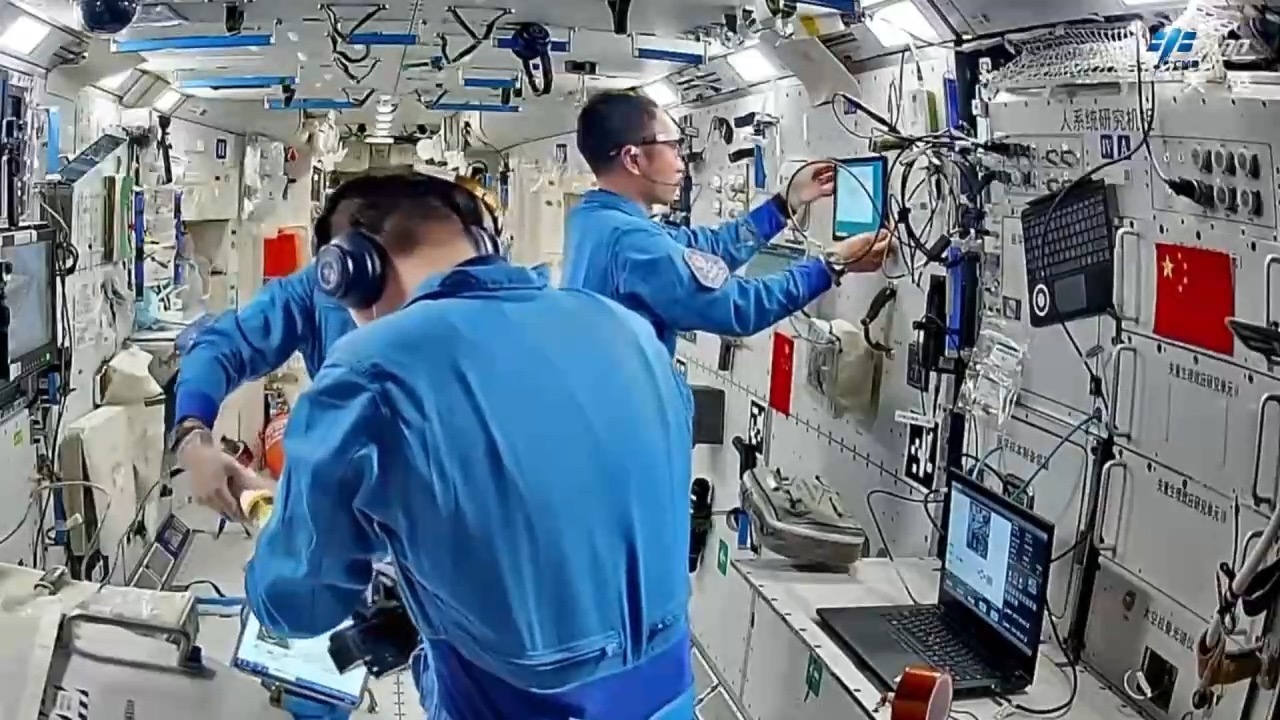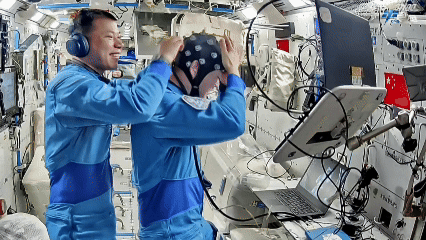
China's Shenzhou-20 crew continues to work in close coordination to advance various tasks inside China's space station. /China Media Group
The Shenzhou-20 crew has been in orbit for more than 170 days, working in close coordination to advance various tasks inside China's space station. Their mission is expected to conclude soon.
Since entering the space station in late April, the three astronauts have been conducting research activities as planned for their mission, which is set to last around six months.
They have used electroencephalogram devices to gather data for studies on metacognitive monitoring, as well as group brain cognitive-affective analysis and regulation, supporting ongoing research on Earth.

China's Shenzhou-20 crew uses electroencephalogram devices to gather data for studies on metacognitive monitoring and group brain cognitive-affective analysis and regulation. /CCTV Plus
In space medicine experiments, the crew used laptops, specialized devices and software to complete several behavioral tests. These included studies on visual field perception, executive function training and metacognitive monitoring. They also conducted electroencephalogram (EEG) tests to collect brain activity data, helping researchers understand how long-duration spaceflight affects astronauts' perception and cognitive abilities.
The astronauts further conducted research on visual-motion and gravity representation, relying on equipment such as a vision function measurement device, eye-tracking systems and testing software.
Additionally, the crew collected and froze saliva samples in orbit, which will support studies on how changes in gut microbiota during long-term missions influence metabolism and gastrointestinal functions.
In the field of space materials science, the crew performed tasks such as cleaning the sample chamber of the container-free experiment unit, replacing samples, maintaining the electrode of the axial mechanism and changing the window cover lens.
They also completed the installation of the fifth batch of microbial control technology culture chip test samples.
For health monitoring and protection, the crew conducted ultrasound examinations of the abdomen, muscles and cardiovascular system. The data collected will help ground-based research teams closely track the astronauts' health during the mission.
Routine station equipment inspections, maintenance tasks and station management work are also ongoing.








 User Center
User Center My Training Class
My Training Class Feedback
Feedback












Comments
Something to say?
Login or Sign up for free